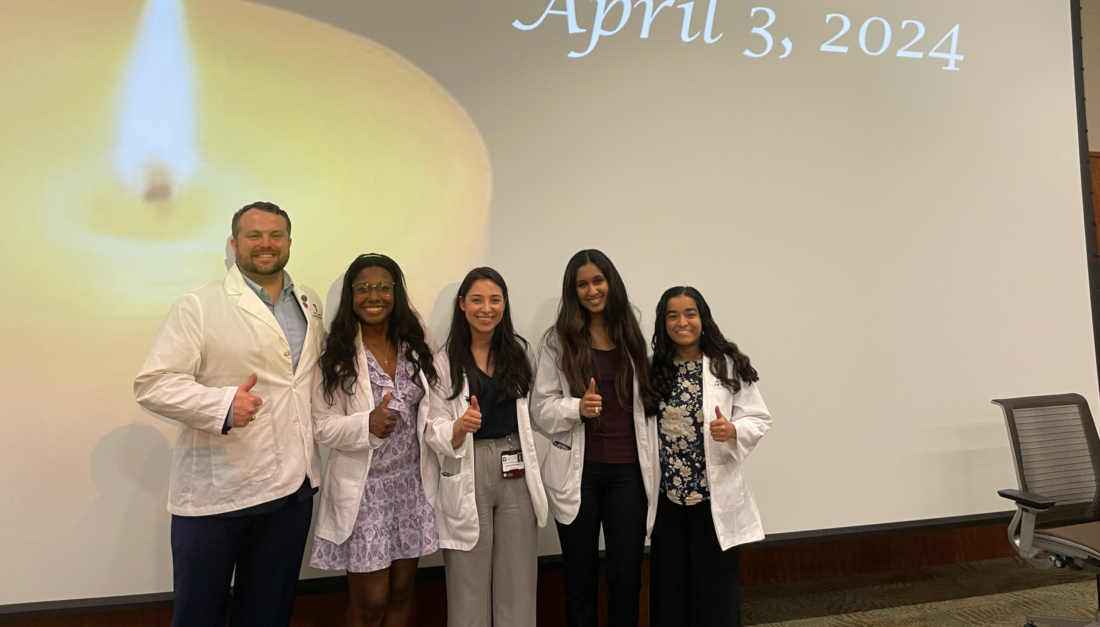Over $1.1 million in CPRIT grants awarded to Health Science Center faculty for cancer research

The Cancer Prevention and Research Institute of Texas (CPRIT) recently awarded grants totaling over $1.1 million to two faculty members at the Texas A&M Health Science Center, one in the College of Medicine and one in the School of Public Health.
Sally Ward, a professor in the Department of Molecular and Cellular Medicine as well as the Department of Microbial Pathogenesis and Immunology at the Texas A&M College of Medicine, received $887,134 from CPRIT for her work to improve contrast for antibody-based tumor detection using positron emission tomography (PET). This imaging approach can be used in combination with radiolabeled antibodies to detect tumors in the body. It can be one of the best methods of cancer diagnosis and staging, as well as monitoring responses to cancer treatment. The problem with PET scans as they’re used today is that they require a radioactive tracer, often an antibody, to be injected into the body. The antibodies used as tracer are absorbed by the tumor, but they also persist elsewhere in the body, leading to a “haze” in the image. “This is a big problem for the image quality,” Ward said. “And the persistence of the radioactivity in the body can cause organ damage.” She hopes to overcome these problems.
In an animal model, Ward and her colleagues have developed engineered proteins that can be used to “clear out” radioactive antibody that is not bound to the tumor, which will improve the image from PET scans and should, in principle, allow for the detection of smaller tumors. Before this method moves into clinical trials, however, there is still optimization and validation studies that need to be done to determine optimal doses and timing, and that is what Ward and her team will do with this grant. The other advantage to this method is improved safety, as the radioactive antibodies won’t remain in the body for long.
Jane N. Bolin, BSN, JD, PhD, professor at the Texas A&M School of Public Health and director of the Southwest Rural Health Research Center, was awarded a $300,000 grant to train community health workers (CHWs) for more effective cancer education and navigation. Bolin works in collaboration with Katy Nimmons, director of the National CHW Training Center, part of the Center for Community Health Development at the Texas A&M Health Science Center. They certify new CHW and new CHW instructors and offer continuing education courses.
There are over 3000 certified CHW in Texas, and they do everything from door-to-door education about things like breast cancer to helping patients with every aspect of the screening. For example, instead of just telling women that they need to get a mammogram, they might help her find a provider and make the appointment, ensure she has transportation and childcare so she go to the appointment, and follow up with her afterward to see if she has any questions about the test or the results. It’s a growing field.
Bolin has received prior CPRIT funding, and this new award is only available to previous applicants who had successful CPRIT grants to scale up the projects. With the funding, they will be able to package materials for other training centers and community health worker programs across the state, from McAllen and Corpus Christi to Tyler, thereby reaching more people. They will also put the materials online for even more CHW instructors to be able to access to serve as a model nationally. “There are a lot of disparities in the state in cancer screenings, and then cancer outcomes and mortality—not all Texans have the same chance,” Nimmons said. “CHWs, we’ve seen, are an effective strategy to reach people who are most at risk.”
“This is a very timely endeavor because of the Affordable Care Act, which envisions a greater role for navigators and community health workers,” Bolin said. “Health care organizations are now reimbursed for this type of service under an individual’s insurance.”
CPRIT provides funding through its academic research, prevention and product development research programs. In 2007, Texas voters approved a constitutional amendment to establish CPRIT with $3 billion in bonds. Since 2009, CPRIT has presented 992 grants totaling roughly $1.47 billion to support cancer research, product development and prevention programs, and has attracted more than 100 distinguished cancer researchers to Texas.
Recent prior CPRIT grant awardees at the Health Science Center include Cheryl Lyn Walker, PhD, director of the Texas A&M Institute of Biosciences and Technology (IBT); Peter Davies, PhD, MD, and Vannakambodi Ganesh, PhD, of the IBT; Yun (Nancy) Huang, PhD, of the IBT; Yi-Shing Lisa Cheng, DDS, MS, PhD, associate professor at the Texas A&M Baylor College of Dentistry; and David McClellan, MD, assistant professor of family and community medicine in the College of Medicine.
Media contact: media@tamu.edu


